 Somewhere up in Ray French’s attic, amid thousands of programmes, is a dusty typed letter from the RFU clearing him to re-continue his voluntary coaching stints with Liverpool St Helens and the Lancashire Schools XV. The letter signs off with a handwritten postscript from the RFU’s then secretary Dudley Wood. “Ray French 1 RFU 0!” wrote Wood who appears to have accepted a rare defeat with his usual sense of humour.
Somewhere up in Ray French’s attic, amid thousands of programmes, is a dusty typed letter from the RFU clearing him to re-continue his voluntary coaching stints with Liverpool St Helens and the Lancashire Schools XV. The letter signs off with a handwritten postscript from the RFU’s then secretary Dudley Wood. “Ray French 1 RFU 0!” wrote Wood who appears to have accepted a rare defeat with his usual sense of humour.
It’s hard to credit these days but French had been banned from both unpaid part-time coaching roles because of the heinous crime of leaving rugby union to turn professional in 1961 and then broadcasting on the 13-man code. Yet for a large chunk of that period – 33 years to be precise – French taught at Cowley HS in St Helens where year after year he produced one of the most successful school XVs in the country.
“The RFU couldn’t stop me coaching rugby at Cowley because being a salaried teacher was my bona fide profession but when they finally heard of my other extra-curricular coaching activities I was banned. I decided not to fight it, life’s too short and I had plenty on my plate anyway, but members at the club and the Lancashire Union took up my cause in the corridors of power and then one day the letter arrived. It was a nice touch from Dudley. Sport should never be confused with real life and a sense of humour always helps ease the situation.”
Shaun Edwards, another to straddle both codes, says: “Sport can be a rough and tumble world but Ray has brought dignity and respect to proceedings.
“We used to watch videos of all our games at Wigan and to get something you did praised by Ray was definitely a big moment that made you walk a bit taller. He had a great way with words but most importantly he knows both games inside out. He knew what constituted an exceptional play and athletic ability and in a highly physical and competitive sport he knew exactly what was acceptable and what wasn’t. Ray has always been a rugby man with a capital R.”
At some stage in the future they might even feel moved to erect a statue to French at Twickenham. When relations between the two codes were at their most acrimonious, when a cold war of mistrust raged, French was always the voice of sanity, a fair-minded individual hugely respected by players and administrators from both codes.
His love was rugby pure and simple. An England union cap before he became a GB league Test player, a lifelong union coach at all levels but the BBC’s rugby league commentator for over 30 years. You can’t get much more even handed than that.
“Cowley HS was a rugby union outpost in a rugby league-daft area so I suppose I always going to have foot in both camps,” recalls French. “Passing the 11-plus to study there when I was 11 was a huge thing for me and the family.
“The former London Welsh back Viv Harrison, one of our St Helens league heroes on a Saturday, taught English and coached the junior union teams at Cowley and, believe me, I hung on every word he said on both subjects. One misconception though is that I then became the master in charge of rugby, which is not really the case. I had no PE qualifications whatsoever. I was just the English and Latin teacher, who volunteered to look after the first XV.
“In those days we only had two periods – that’s one hour and 20 minutes – of sport a week so everything else was done ex-curricular, in our spare time. You know what, though, that system worked really well in a strange way because when I took sessions in my lunch hour and after school I was determined to make them count and the lads who made that commitment were also there because rugby was important to them. You can do a lot with that sort of focus and determination.
“We produced some very good players – Ian Ball, Steve Tickle, Mike Burke, Dave Carfoot and Dave Gullick. Fearless Fred Howard the ref was one of ours, too.
“Before going to Cowley the rugby I knew was ‘street rugby’ in St Helens which was basically a rough and tumble 20-a-side version of rugby league with no refs which we staged on Dodd Avenue Park or any free space. They were some of the best rugby games I ever played and only stopped when it got dark. Eric Ashton, one of the great rugby league centres of all time, played for my street. I lived in Macfarlane Avenue and we used to regularly play Ellison Drive or Hewitt Drive. We would be like a band of brothers off on the Crusades. We would put our boots and kit in bags with a few sandwiches and march off down the road. We might occasionally halt to listen to Dick Barton on the radio at 6.45pm but that was about it.”
After Cowley the strapping young French – 6ft 3in, 14st – ventured across the Pennines to Leeds University where he studied English and Latin although he quickly added Russian to his bow. “I needed one more module, apparently, anyway there was this long queue at Freshers week with this terrific looking girl at the back. I went over, introduced myself, discovered it was the queue to sign up for the Russian course and all things considered decided that perhaps I should study Russian as well.”
The Leeds University XV was very strong with three future England caps in the pack – French, Bev Dovey and Dave Wrench – and soon French had been noticed for his uncompromising work around the park and fierce tackling and was drafted into the convoluted England trials system designed to produce a team for the 1961 Five Nations.
“They were strange old games, we had three in total and, except for Alan Ashcroft, I hardly knew anybody. Socially I felt way out of my league. Before one trial, in Coventry, they put both teams up at the Leofric Hotel and we all dined out together the night before the match, a full six-course banquet. Lobster thermidor was one of the courses and I sat there in a blind panic not knowing what to do. Alan told me I could pick it up and eat with my hands but I thought it was a wind-up and waited until I saw some of the big names do just that before I dived in.”
“I would be No.8 these days but I got selected at lock next to David Marques for the opener again Wales at the Arms Park, which was an absolute quagmire in those days. They outscored us two tries to one and the reports suggest it was a decent game but I remember hardly any rugby being played. Quite why 60,000 people would waste good money to watch that I have no idea.
“Next up was Dublin and Tony O’Reilly. Tony was still at the height of his powers and whenever I am asked who is the best union player not to turn professional and play league he is always my nomination. Big, strong, fast, fearless, a try-scorer, huge personality, box office, legend. Of course he didn’t need the game what with his business career but Tony would have been a sensation. Hell of a nice bloke. On the Sunday morning – England had lost 11-8 – he invited all of us over for a barbecue and a drink at his house, or some grand place anyway, and entertained us royally for the day while we waited for a plane home, I had the great honour of playing with Tony for the Barbarians that season and loved his company. Ireland had a good pack against us, that Syd Millar was a rough lad!
“The French game at Twickenham was another boggy morass, we drew 5-5, but we finally bagged a win in the final match against a useful Scotland team. We had some good players that season. Bev Risman and Richard Sharpe were class although the selectors could never decide who was the best fly-half and eventually Bev went professional. Dickie Jeeps was a great guy, hard as nails and a good captain who looked after you.
“Dickie would have loved League as would Derek Morgan our No.8. In fact, Gus Risman, Bev’s dad and a great league player, spent most of that Saturday night of the Scotland game at the bar of the Mayfair Hotel trying to sign me and Derek up for Oldham.
“I had more or less made my mind up to turn professional but I wasn’t quite ready to commit. A part of me wanted to stay one more year and challenge for a Lions tour place to South Africa in 1962 where I thought I might do okay on the hard grounds. Eventually I reasoned I could get injured and miss the tour and miss out on a league career as well so I signed for St Helens who were offering a tax-free £5,000, a record fee for a forward at the time. Leeds offered even more but I wanted to play for my home town.”
When French finally retired as a player the BBC head of sport Cliff Morgan, a big fan, moved quickly, firstly to get him alongside Eddie Waring doing the expert’s role for a couple of seasons and then to succeed Waring at the lead commentator in 1981.
“I would always sit on my grandfather’s lap and when the results came in on a Saturday night, I would do some commentary for him. Much later I did some work for BBC Merseyside and they asked me to do an audition, which I completely forgot about. I took Cowley to Australia for five weeks and while I was sitting in the Flower Drum Chinese restaurant in Melbourne at midnight, I got a phone call saying would I like the job. I thought it was a joke and told the caller to clear off. I then realised he was deadly serious. Luckily the producer Nick Hunter had a good sense of humour and we became great colleagues.
“Cliff Morgan was a great support, you implicitly trusted his judgment, if you were good enough for Cliff that was a pretty good start. He told me to be myself, he wanted a different approach than Eddie who had been an iconic commentator but now the BBC wanted to broaden the appeal of what is a minority sport and Cliff wanted more tactics, more rugby if you like, although he still wanted those human touches and observations.
“What I did do for two or three years though was turn down the sound if ever a league match or union international was on the TV. It’s not that I wanted to practise – I was just very aware of trying to avoid picking up phrases and cadences from other commentators.
“It’s very easily done. I know from being an English teacher and doing a bit of sports writing myself how easy it is to unconsciously start using other people’s expressions. It’s not a sin, it’s human nature, but I wanted to create my own style first and after that was established I was more confident listening to others.”

1 Comment
You must be logged in to post a comment Login
Leave a Reply
Cancel reply
Leave a Reply
You must be logged in to post a comment.
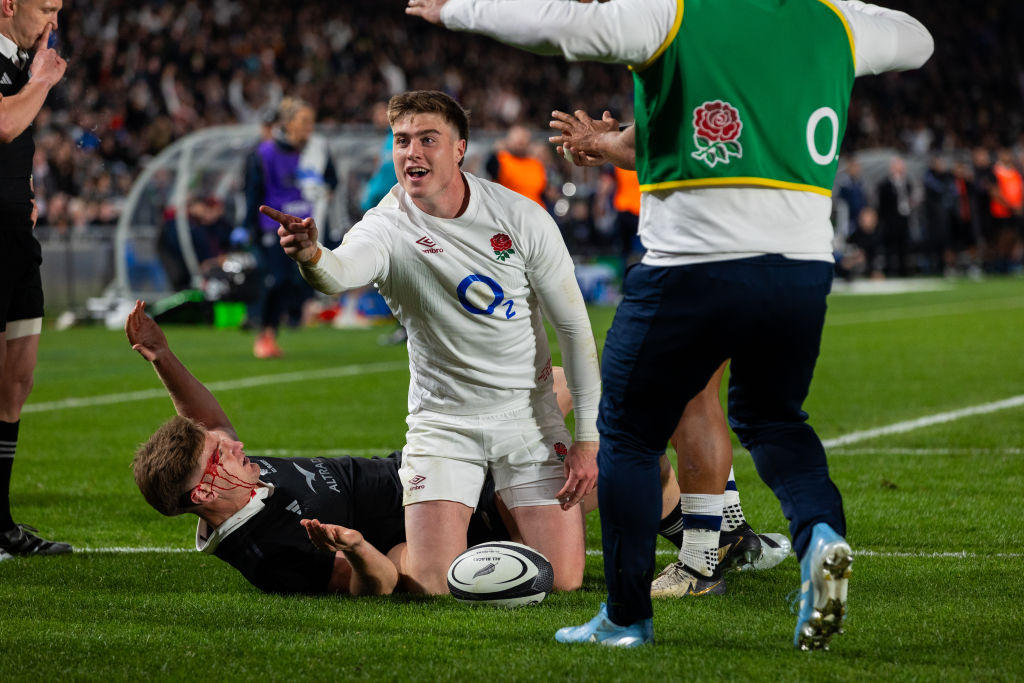
British and Irish Lions
From Leicester reject to a British and Irish Lion: Tommy Freeman’s stellar rise
Latest News
Steve Diamond: Franchise league a good idea

International Rugby
Touring Japan with Wales is my goal says Dan Edwards
















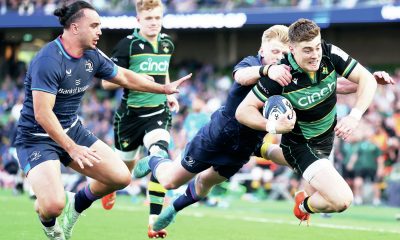

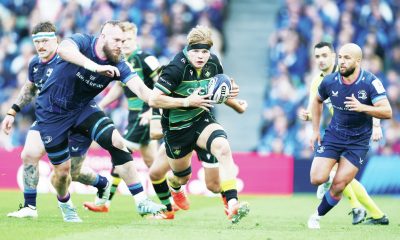

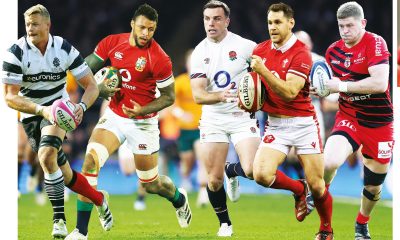

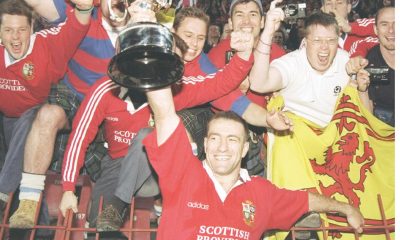

Pingback: magnetisch speelgoed